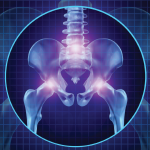Dr. Schubiner said such treatments as cognitive behavioral therapy, acceptance and commitment therapy (a type of psychotherapy) and mindfulness are helpful, but with a caveat. “[Those treatments] start from the premise that [they] will help you cope with your pain and live with it better, and people don’t really want that,” he said. “They want to get better.”
Resources

Dr. Hausmann
Dr. Hausmann wondered if rheumatologists should lead the charge with helping certain patients, including some with fibromyalgia, reprocess their pain.
“I think it’s not so much the [specialty], it’s the interest,” Dr. Schubiner said, noting that he had a rheumatologist who was also finding ways to make extra time for chronic pain patients go through one of his training programs. However, if a clinician doesn’t have an interest, it won’t work as well.
Both clinicians and patients interested in learning more about the mind-body approach and pain reprocessing can explore resources on Dr. Schubiner’s website and elsewhere (see sidebar below).
Vanessa Caceres is a medical writer in Bradenton, Fla.
Reference
- Ashar YK, Gordon A, Schubiner, H et al. Effect of pain reprocessing therapy vs. placebo and usual care for patients with chronic back pain: A randomized clinical trial. JAMA Psychiatry. 2022 Jan 1;79(1):13–23.
Resources
Clinicians and patients interested in learning more about the mind-body connection and pain reprocessing can explore Dr. Schubiner’s website and the following resources:
• Dr. Schubiner’s Mind-Body Medicine;
• Videos on the mind-body connection (available in English and Spanish);
• Psychophysiologic Disorders Association;
• Michigan State University course: Reign of Pain; and
• Curable Health: An app to guide people in recovery from mind-body disorders.
More Episodes
A new episode of ACR on Air comes out twice a month. Listen to this full episode and others online at acronair.org. Or download and subscribe wherever you get your podcasts.

